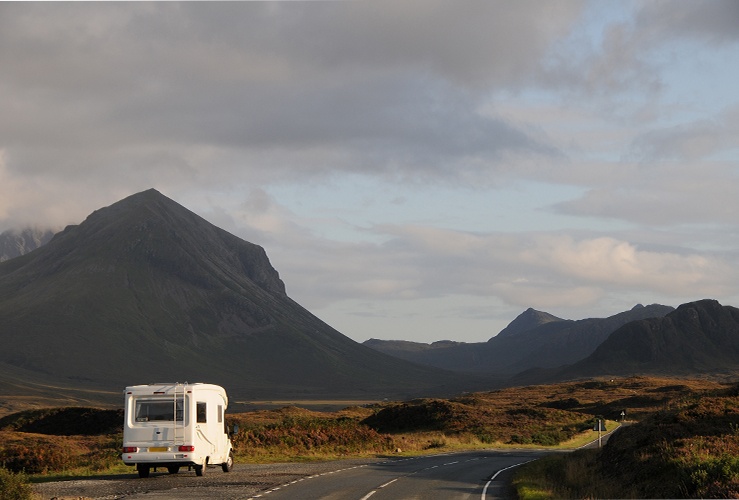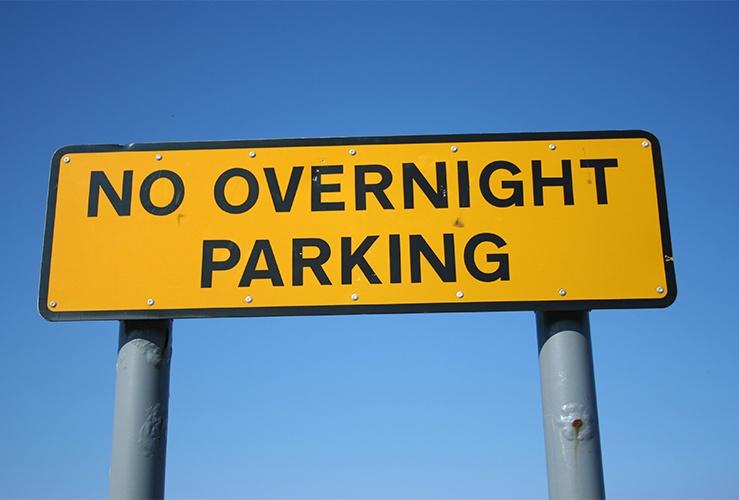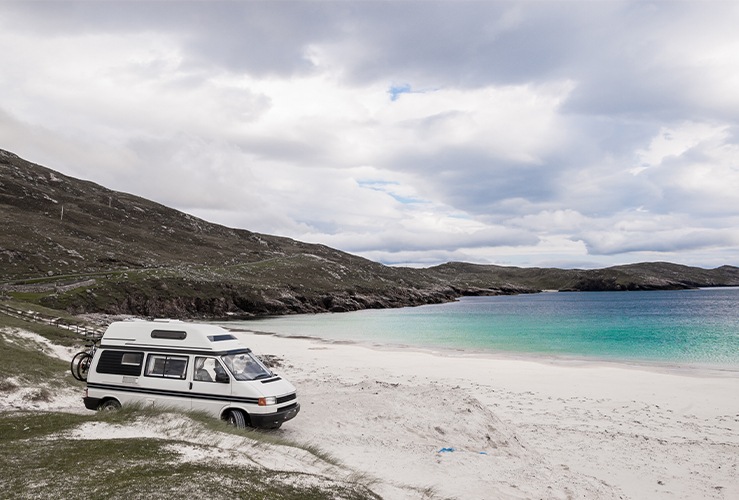Things are not crystal clear when it comes to overnight parking and whether it is legal to sleep in your car in the UK. How national rules or local bylaws are applied may depend on things like:
- Whether you park on public or private land
- Which UK country you are parking in
- Whether you are causing an obstruction
- Whether you are littering or engaging in antisocial behaviour
- The particular attitude/policies of the landowner as regards overnight parking
- Whether you are noticed

Parking near public highways
When it comes to parking near or on public highways, the go-to legislation is the Highways Act 1980. Under this act, if you are deemed to be obstructing a public highway, you can be asked to move on. In practice, authorities (local councils and by extension police) will probably only ask you to move on if you are causing a serious safety concern with your parking, or if you stay multiple days.
You should not obstruct access to roads, driveways, or to a property's view.
Can you sleep in your car UK?
Is it legal to sleep in your car? Near a public highway: As long as your vehicle is not causing an obstruction, there is no law against sleeping in your car overnight.
On private land: in general, you should seek permission from the landowner. In a car park, for example, as owned by a company, local council, NHS etc, you may not be allowed to sleep overnight in your vehicle. For example, NHS car parks often prohibit sleeping in your car overnight.

Public or private land
All land in the UK is owned by someone. Which person or entity owns a piece of land affects whether or not you can park overnight. Nearby signage will detail whether or not overnight parking is permitted. However, you're only likely to encounter legal ramifications if it clearly states the penalty for doing so (see example photos in this article).
In most cases, you need to obtain permission from the landowner before parking. However, if you arrive late and leave early, and don’t leave any litter or waste, you're unlikely to encounter any problems.
Not going to jail
Contravention of any parking rules is a civil rather than criminal matter, so being arrested is not going to happen. (However, accruing many Penalty Charge Notices (PCNS), for example, may result in being pursued by bailiffs).
Car parks
Parking rules in car parks are usually clearly signposted, as are any penalties for breaking these rules.
Road Traffic Act of 1988
This stipulates that you can drive (read: park) a vehicle off-road but it must be at least 15 yards from any public road - and you need the landowner's permission.
“(3) It is not an offence under this section to drive a mechanically propelled vehicle on any land within fifteen yards of a road, being a road on which a motor vehicle may lawfully be driven, for the purpose only of parking the vehicle on that land.”
- Road Traffic Act of 1988
Wild camping
Wild camping causes a lot of confusion among those with motorhomes and other vehicles. This is where you park up and stay overnight. Problems arise when such land is used for more than just sleeping - i.e. setting up awnings, chairs and staying for multiple days.

Wild camping in Scotland
In Scotland, there are special routes where wild camping (overnight stays not in car parks, campsites etc.) is tolerated - these are called NC500 and the SW300. As long as wild campers are responsible and do not leave behind waste, no issues should arise. Scotland has a more liberal approach to wild camping than England and Wales.
Wild camping in England
In some parts of Dartmoor wild camping is permitted. Otherwise, permission from the landowner should be sought.
In the Real World
While you should seek permission to park on private land from the applicable landowner, you probably won’t encounter any issues if you behave responsibly and only stay/park for a night or two. Overnight parking in lay-bys is generally tolerated, in the same way, that lorry drivers taking a roadside nap is tolerated.
Being polite and respectful when engaging with landowners is likely to result in a more positive outcome.
To ensure you adhere completely to the law, you should park up in a campsite if one is nearby. Be sure you don’t park near road access points or people's homes, and aim to arrive late and leave early - so you're barely noticed by the locals.
Passing Places
Passing places are designed to allow traffic to pass each other on single track roads. Never park in these.
Overnight parking in the UK in 2020 (Covid-19)
The coronavirus pandemic has made UK “staycations” more popular than ever, which has increased overnight parking in national parks and other rural areas. With huge pressure on campsites and other potential parking areas, it's important to plan where you'll be staying well in advance.




